About Gaia University
 Widescale human learning and unlearning are the keys to making the transition from our current eco-destructive culture to a fresh, designed culture that is eco-constructive and socially just.
Widescale human learning and unlearning are the keys to making the transition from our current eco-destructive culture to a fresh, designed culture that is eco-constructive and socially just.
Those of us who are willing need to choose to make this transition now.
Some people (we calculate hundreds of thousands) have already started on this endless journey and this worldwide web of pioneers holds a vast repertoire of useful experiences for future learners.
Our observation is that transition pathways of this significance are deepest, most effective and most enjoyable when traveled in the company of others, and that trail guides, who have made a part of their own journey already, can perform a valuable mentoring service.
Our belief is that this learning process deserves to be supported and enhanced through the provision of a 'liberating structure' that acknowledges the effort and commitment people make when walking these pathways. Gaia University is one such structure.
Using self-directed action learning as our prime learning/un-learning strategy we put students (Associates) in charge of their own transitions, free to follow routes which open up before them, guided by their tutors and mentors, whilst earning credits for Bachelors and Masters Degrees, Certificates and Diplomas.
We notice the vital signs of an awakening of transitional energy amongst the world's peoples and so, we have launched Gaia University to provide the support we can to these bold world changers and future generations of Earth caretakers.
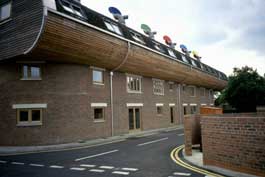
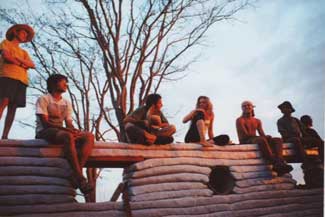

Gaia University is a new organization within the large family of organizations worldwide concerned with the emergence of an ecologically and socially regenerative mainstream culture.
It is created with several, network-wide functions in mind, some of which are described briefly below.
Beneficial connections:
Gaia University has the facility to connect across organizations using the allied vectors of teaching and learning. Thus organizations may retain their autonomous agendas whilst linking cooperatively to provide a learning ecology suited to their purposes.
Regeneration ouputs:
Gaia University Associates earn their credits partly through working at strategic and operational projects for sponsoring organizations. Thus organizations increase their capacity by tutoring and mentoring allied Associates and advance their agendas with this focused and intelligent support.
Strategic development:
Organizations wanting to participate in Gaia University will need clearly articulated strategic goals in order to attract supporting Associates. Thus an impulse for clear strategic planning is pulsed through the networks leading to better focus and performance throughout.
Fund earning:
- Organizations giving relevant workshops can likely increase their market by having the added value of Gaia University accredited degree credits arising from their trainings and,
- Suitably qualified organizations can increase the per capita earnings per learner as the Gaia University system offers the potential to retain Associates within their curtilage for the duration of the Associates degree pathway (as workshop attendee, action learning tutee and project activist)
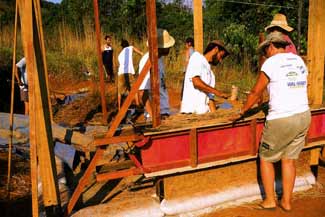 Organization development:
Organization development:
Gaia University requires that participating organizations engage their relevant personnel in continuous professional development pathways ideally using Gaia University action learning methods. Thus organizations have added incentives to develop increased competence and excellence within their staff.
Learning release:
The network contains a vast repository of skills, knowledge and wisdoms that are currently under-utilised. By creating a structure for transfer of learning between organizations and actionists Gaia University expects to accelerate the emergence of an ecologically and socially regenerative mainstream culture.
Leadership opportunities:
An example: a group of actionists may observe that increased entrepreneurial consciousness and competence within many ecovillages may lead to these being better able to support their autonomous development through self-earned income. Such a group can design an action-learning pathway with this purpose in mind, convene an action learning set complete with specialist advisers and run it. Voilá!
A Short History of Gaia University
Over the years there have been several initiatives to form a university focused on the needs of Gaia, the living planet. Gaia is the name of the ancient Greek goddess of the Earth and was, more recently, re-adopted by James Lovelock in the 1970's to promote a whole systems approach to the newly recognized field of ecology.
In the late 1980's, Radical Routes in Birmingham, England to support their initiative to launch a Gaia University approached Andy Langford, as the president of the Permaculture Association of Britain. The Birmingham Gaia University initiative ran until quite recently, although it never fulfilled it's potential being unable to find accreditation suited to its particular style.
Meanwhile the permaculture networks started organizing their own higher learning strategy inspired by Bill Mollison's 1993 call to form local Permaculture Academies and for these to seek local accreditation.

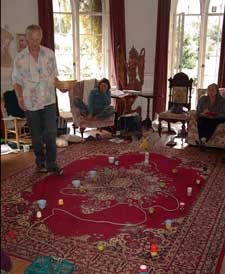

In March 1993 leading UK permaculture teachers and designers met in Bristol, UK to outline an accreditation strategy. Two strands emerged and Andy Langford took on the role of advancing the design of a Permaculture Diploma education whilst others proceeded with formal accreditation approaches.
The first strand resulted in The Diploma WorkNet, which has been functioning successfully for the last 12 years accrediting over 200 Diplomats. Using an action-learning model, associates have earned a two year Diploma in Applied Permaculture Design. This is self-accredited by the permaculture community.
The second strand focused on the taught, 72 hour Permaculture Design Workshop that has now been formally accredited through the Open College Network system of the UK in association with the Workers Educational Association and Richmond College of Further Education and has also received accreditation as a first year Bachelors degree module with Middlesex University, UK.
In 1998, Hildur and Ross Jackson of Gaia Trust, convened an ecovillage educators meeting in Thy, Denmark to explore the dissemination of the ecovillage concept of integrated design through the development of an educational program. Here a Mama Gaia University was proposed.

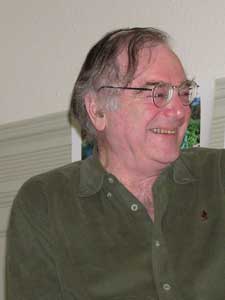
In 2004, these two visionaries, whose impetus and generosity resulted in the founding of the Global Ecovillage Network, again brought together a group of educators from within the ecovillage and allied movements to plan an ecovillage designer's education. This pioneering group has formed a curriculum for a model 4 week Ecovillage Designers Course and is currently working with UNITAR on a program which is spreading this much needed knowledge and expertise. The resulting educational program known as Gaia Education, while a separate project from Gaia University is linked in its visions and goals of spreading the techniques and knowledge embedded in the ecovillage experience. Learn more.
It was at that 2004 meeting at Findhorn Ecovillage that Andy Langford and Liora Adler met and began to envision the expansion of the Permaculture Diploma WorkNet project into a global learning community that would include all of the curricula of the movements in which they are active. The founders of Gaia University have had extensive involvement with the ecovillage, permaculture, bioregional, consensus, facilitation and eco-health social change activities for the past 35 years. These movements are part of a long history of pioneer ecological and social justice thinking reaching well back through the 1930's, the 1890's and further to the 1600's.
A quite special synchronicity opened the accreditation pathway and the current Gaia University was born. Gaia University was incorporated in Colorado, USA, in October of 2004 as a non-profit corporation and currently functions as both a for-profit and non-profit organization under the fiscal sponsorship of the Global Village Institute for Appropriate Technology.
Gaia University students (associates in our terminology) are accredited to earn Bachelors and Masters degrees through IMCA and Revans University and to earn Certificates and Diplomas through Gaia University directly. In addition, Gaia University is an official contribution to the UN Decade for Education for Sustainable Development.


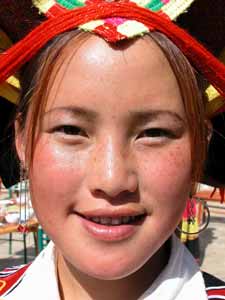
This website represents the kernel of the vision of Gaia University. Its development is a work in progress as it both supports and requires the active involvement of people and centers all over the world who are serving as living models to both research and demonstrate the ways in which we humans can live more sustainably on the Earth, while allowing the planet to regenerate its systems.
We invite all of you who hear the call of the Earth, whose hearts beat more powerfully when imagining a world of beauty, justice, peace and sufficiency for all, whose life vision includes the care of Gaia and her people, to add your zest, your vision, your idealism, your energy to the history of Gaia University for the next seven generations.
